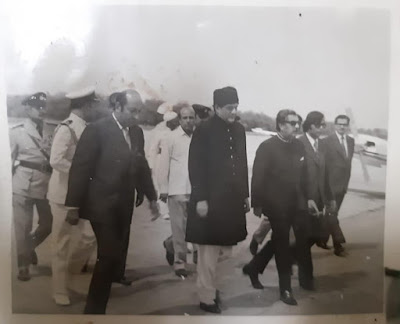The Art of Painting on Wood with Oil Colors: A Presentation by Moolchand Thatoomal Dewan and the Legacy of Moolchand Das
 |
| A stunning example of wood painting with oil colors by Moolchand Thatoomal Dewan, presented with the support of Sayed Wadyal Hussain Shah Musavi from Rohri. |
History and Techniques of Wood Painting with Oil Colors
Wood painting has roots stretching back to ancient civilizations, with examples adorning Egyptian tombs and medieval European churches. The introduction of oil paints in the 15th century pigments mixed with linseed oil marked a turning point, offering artists unmatched versatility and longevity.
To create a wood painting, artists begin by preparing the surface. The wood is sanded smooth and coated with a primer or gesso to ensure an even base. Oil paints are then applied in layers, following the "fat over lean" principle: each layer contains more oil than the one beneath it, preventing cracking as the painting dries. This meticulous process results in rich, luminous artwork that endures for generations.
Moolchand Thatoomal Dewan: A Master of Wood Painting
Moolchand Thatoomal Dewan is a name synonymous with excellence in wood painting. Renowned for his skillful use of oil colors, Dewan’s works feature intricate details, vivid hues, and a masterful play of light and shadow. His latest contribution a picture painted on a wood sheet with oil colors stands as a testament to his artistry. This piece captures a serene landscape, showcasing the depth and beauty achievable with this medium.
A Masterpiece in Detail: The Portrait of Sayed Wadyal Hussain Shah Musavi
Among Dewan’s most celebrated works is an exquisite oil painting on wood depicting Sayed Wadyal Hussain Shah Musavi seated on an ornate chair, dressed in traditional attire with a turban and long coat. The chair, intricately carved and richly detailed, reflects the opulence of the setting, while Musavi’s attire rendered in deep, vibrant colors exudes a sense of dignity and grace. The background features domed architecture, symbolizing the cultural heritage of Rohri, and lush greenery that adds a touch of serenity. Swans glide gracefully in a tranquil water body, their presence enhancing the peaceful atmosphere, while a vase of flowers on a side table introduces a burst of color and life. This artwork showcases the craftsmanship of Moolchand Thatoomal Dewan, evident in every brushstroke from the delicate rendering of the swans’ feathers to the intricate patterns on the domed structures making it a true masterpiece of wood painting with oil colors.
Moolchand Thatoomal Dewan’s mastery of wood painting with oil colors has earned him recognition as a leading figure in the art world, with his works displayed in galleries and museums around the globe. His influence extends beyond his own creations, inspiring a new generation of artists, including Moolchand Das, to continue the tradition of wood painting.
Moolchand Das: Carrying Forward the Tradition
Moolchand Das, a protégé of Moolchand Thatoomal Dewan, has made significant contributions to the art of wood painting with oil colors. His works, characterized by their vibrant colors and intricate details, have been exhibited in galleries across the country. Das’s dedication to preserving and advancing this traditional technique has earned him a place among the most respected artists in the field. Through his art, Moolchand Das ensures that the legacy of wood painting with oil colors remains alive and thriving.
Sayed Wadyal Hussain Shah Musavi: A Patron from Rohri
In the historic city of Rohri, Sayed Wadyal Hussain Shah Musavi emerges as a key figure in the preservation of this art form. A passionate supporter of local talent, Musavi has championed artists like Moolchand Thatoomal Dewan and Moolchand Das, ensuring that traditional techniques like wood painting with oil colors continue to thrive. His patronage underscores the cultural richness of the region and its commitment to artistic heritage.
Conclusion
Painting on wood with oil colors is more than an artistic technique it’s a legacy. Through Moolchand Thatoomal Dewan’s breathtaking presentation, the dedicated work of Moolchand Das, and the support of Sayed Wadyal Hussain Shah Musavi from Rohri, this craft continues to inspire. Dive into this captivating world and uncover the beauty of wood painting for yourself.
For further exploration, consider these authoritative resources:
- The Artist's Handbook of Materials and Techniques by Ralph Mayer
- Oil Painting Techniques and Materials by Harold Speed
art, painting, oil colors, wood painting, Moolchand Thatoomal Dewan, Sayed Wadyal Hussain Shah Musavi.
#art, #painting, #oilcolors, #woodpainting, #moolchanddewan, #sayedwadyalhussainshahmusavi









.jpg)
.jpg)


.jpg)
.jpg)
.jpg)
.jpg)
.jpg)
.jpg)
.jpg)
.jpg)
.jpg)
.jpg)
.jpg)
.jpg)
.jpg)
.jpg)
.jpg)
.jpg)
.jpg)
.jpg)
.jpg)


